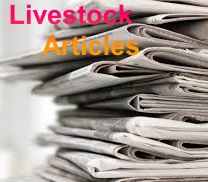Sustainable Production
©Glenneis Kriel
Like in other businesses, farmers are highly dependant on their workers for their success.
The word sustain means to continue, so sustainable production refers to the ability to continue production. In agriculture, sustainability first of all relates to a farm’s financial viability, because a farmer will not be able to pay living wages or use responsible production practices unless they are making money. Besides this, it also refers to ethical and environmentally responsible production.
Social Responsibility
Agriculture is one of the leading job creators in the country and what makes it even greater is that it offers easy access. It is also one of the few industries left where relatively low-skilled workers can quickly work themselves up to better positions if they prove themselves.
Workers are generally seen as strategic partners in the success of a farm. While seasonal workers are used during peak season, many permanent labourers come from a lineage of farm workers that have often been linked to the same farm.
Unlike European countries where workers commute to farms, the vast distances between towns and farms result in many workers living on farms resulting in the lives of farmers and their workers being closely interlinked. Farmers then supply services that would be expected from the government, by, for example, providing transport in areas where public transport is non-existent, coordinating and funding aftercare, day-care and sport facilities and activities, and providing access to medical facilities.
Ethical Trade
Various programmes are run to guarantee fair and ethical labour practices. The SIZA programme was launched after the fruit industry took a decision in 2008 to respond to the growing need of retailers and their consumers for assurances of fair labour practices in their supply chain, while the Wine and Agricultural Ethical Trade Association (WIETA) Code of Conduct was launched in 2010 for wine farmers and cellars.
SIZA and WIETA supply a framework of good practices against which members and their supply chain are monitored and audited. The standards go beyond South Africa’s labour and occupational health and safety legislation and are audited by third parties.
Fairtrade is an international social programme that awards farmers for compliance to their standards by adding a premium to the produce. There are strict regulations on how these premiums can be spent, generally only relating to social upliftment. Many international retailers also have or are in the process of developing their own programmes.

.jpg)






